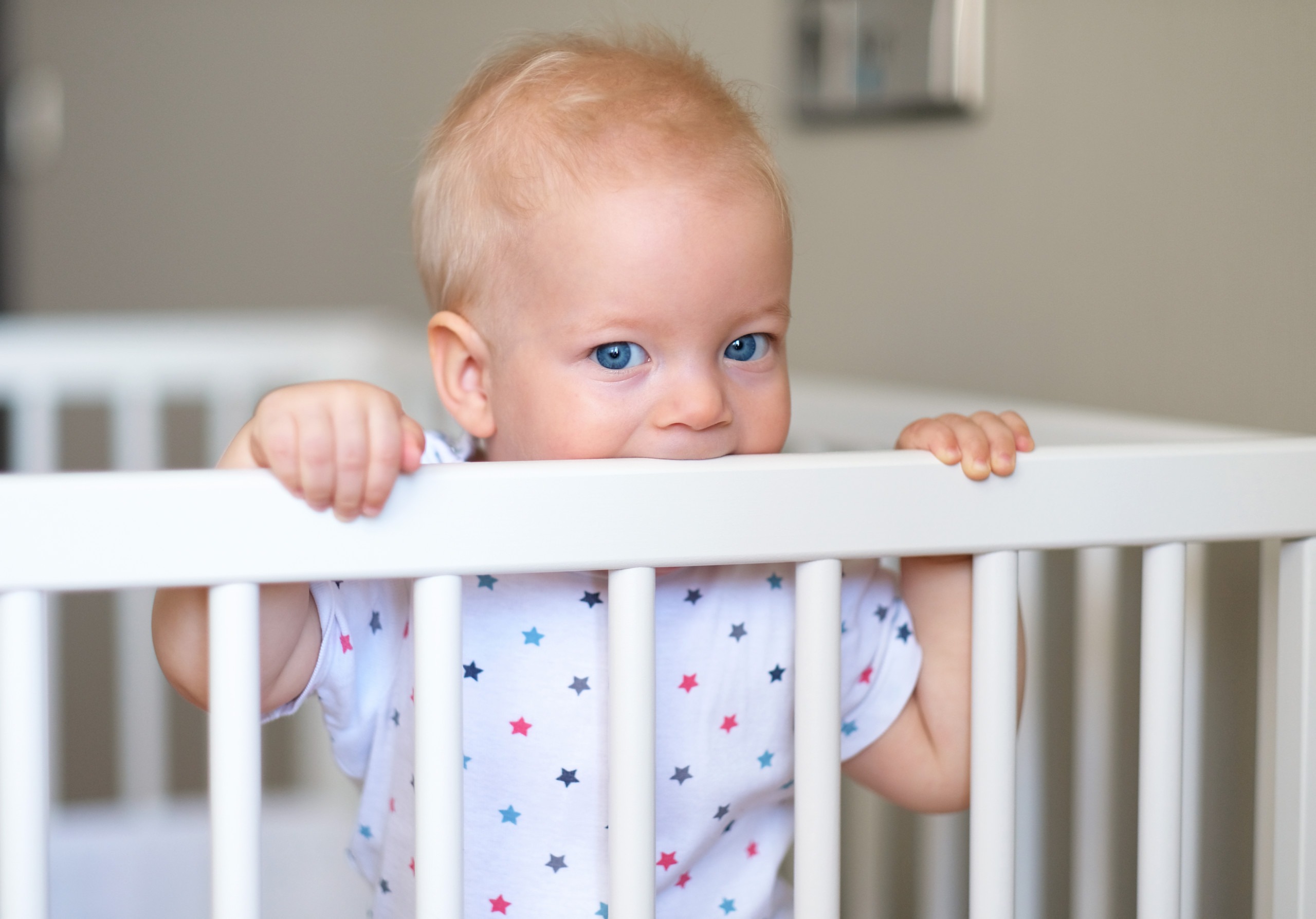Does your child have intense (and often extreme) reactions to new people or experiences? If so, he may be a Highly Sensitive Baby or Toddler. This article describes the typical traits of these perceptive little people and what their parents need to know to help them live, play and sleep well.
This post may contain affiliate links.
Traits of a Highly Sensitive Baby or Toddler
Your highly sensitive baby or toddler doesn’t miss a thing! This perceptive little one sees, hears, smells and feels at a different frequency than others. He reminds you of things others may not notice- like an itchy shirt tag or a car alarm that won’t shut off. A tiny rock in his shoe can set off a meltdown.
For your highly sensitive soul, an outing is an overwhelming sensory experience. Other babies may handle being passed from person to person just fine. Not your little guy, he gets overwhelmed and fussy. He often needs “down time” after play dates to restore his emotional balance, and is calm enough to eat when his environment is quiet and relaxed. Highly sensitive babies have difficulty relaxing enough to fall asleep, requiring hours of holding, rocking and bouncing– it’s the only thing that works!
It’s probably been difficult for you to understand your baby’s likes and dislikes. What worked yesterday isn’t going so well today. Highly sensitive babies and toddlers cry and cling a lot, leaving their parents confused, physically drained and often in need of an “adult beverage” at the end of the day.
It’s not all bad news, though, these emotive little ones are usually creative, intelligent and gifted with words. They are highly empathetic and tend to be artists. It’s estimated that 15-20% of children are Highly Sensitive.
How Can I Make Life Easier for my Highly Sensitive Baby or Toddler?
- All children thrive with familiarity, however highly sensitive kids need an especially predictable routine. Eating, sleeping and playing at the same times each day helps your little one relax. Frequently changing the order of his day is simply too overwhelming for him.
- Give your little guy time to warm up to new people or places. Don’t push him to overcome his “shyness” and definitely don’t throw him in Santa’s lap unless you want him to have an epic meltdown.
- If you can learn to read his cues to avoid what triggers him, it will ease a lot of stress and worry (for you both.)
- Highly sensitive babies and toddlers get overstimulated easily, making it hard for them to sleep. Your best bet for a peaceful sleeper is a consistent bedtime, relaxing bedtime routine and a sleep space that is dark, quiet and boring. No mobiles, night lights or lullabies playing all night.
RELATED: Check Out My Daily Schedules for Your Baby or Toddler
How Can I Get My Highly Sensitive Baby or Toddler to Sleep Well?
Firstly, you should focus on establishing a daily schedule. Make sure your baby or toddler eats, naps and has the same bedtime each night. Many sleep problems diminish once meals and sleep times are in sync with your baby’s body clock.
After implementing this, if you’re still having multiple night wakings or short naps, check out my Exhausted Mom’s Starter Kit. It’s my personal step-by-step guide on getting your baby to sleep well in a way that’s best suited for his temperament.
If early wakings are your only issue check out my guide on how to get your toddler to sleep until 7am.
If you’re looking for a complete program for your toddler, check out my Big Kid Sleep Made Simple program; it addresses sleep disturbances that occur in children ages 2-6 years of age and offers step-by-step instructions and guides. And for little ones ages 5-24 months, check out my 21 Days to Peace & Quiet program.
How do you help your Highly Sensitive child? Let us know in the comments below.











I definitely have a highly sensitive almost 6 month old .
I find the dark room ,no distraction thing so challenging as she almost needs stimulation to fall asleep…..if she recognizes anything that resembles sleep she starts fighting it .
I’ve paid for so many sleep programs that all say being still in a dark room and I give up because I can’t get her to do it ……she can only fall asleep with constant movement or soothe feeding.
she’s had silent reflux and is on the medication for it but it’s so hard to work out which is causing what
Hi Chevy,
Thank you for reaching out. I’m sorry you’ve worked with so many sleep consultants but nothing has really helped.
If you work with us, we’ll 100% customize sleep training to fit your child’s needs. We’d love to work with you. Please join our program (with support for sure) and let’s get your daughter sleeping amazingly:
https://www.babysleepmadesimple.com/baby-sleep-consultant/
We have a 30 day refund policy in case it wouldn’t work, so it would never be money wasted. But we also have a 98% success rate, so I’m confident we can help you!
Kind regards,
Artemis, BSMS Support Team
Well one thing I find helps the most and is in fact a bit of a paradox is getting enough sleep. These babies need more sleep and rest than the rest, so don’t fall into the trap of other people advising you to “tire them properly” – the more tired they are, the harder time they have falling asleep. it’s not just night sleep, ensuring good naps during the day is very important. Very hard to achieve, but extremely worthwhile.
Hi Elena,
There’s a difference between being overtired and unable to sleep, and having had a full day of play and stimulation in order to be calm when it’s time to sleep. We urge parents to do the latter.
If your child is at an age where they still need to nap, taking naps is crucial for night time sleep as well, yes.
We help parents with all aspects of sleep and we hope that if you need any help, you reach out to us or join a program!
https://www.babysleepmadesimple.com/get-help-now/
Kind regards,
Artemis, BSMS Support Team